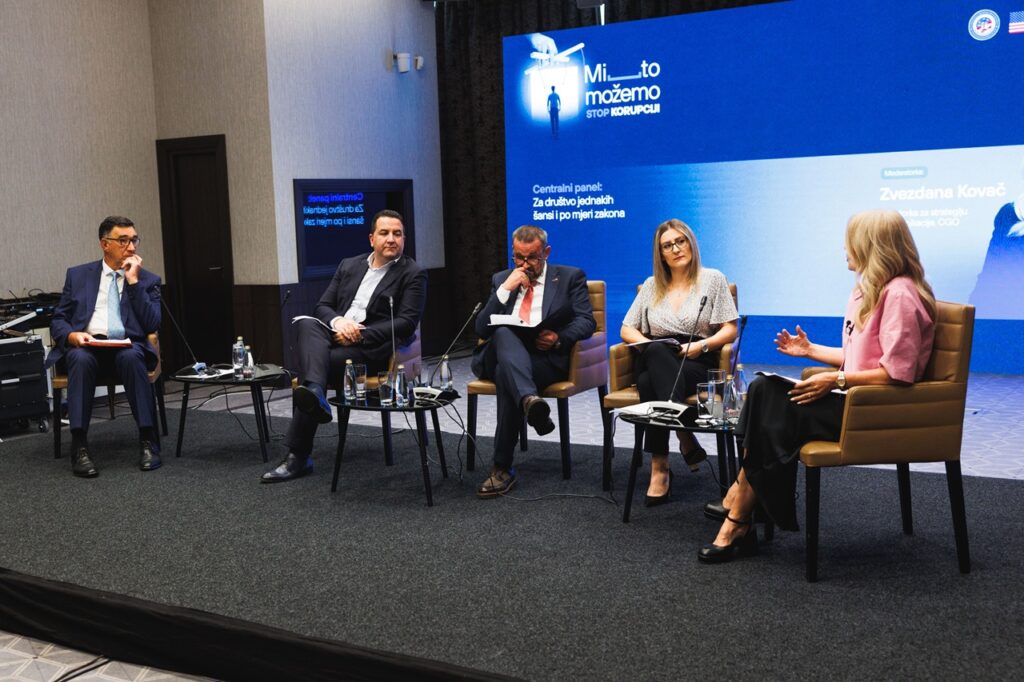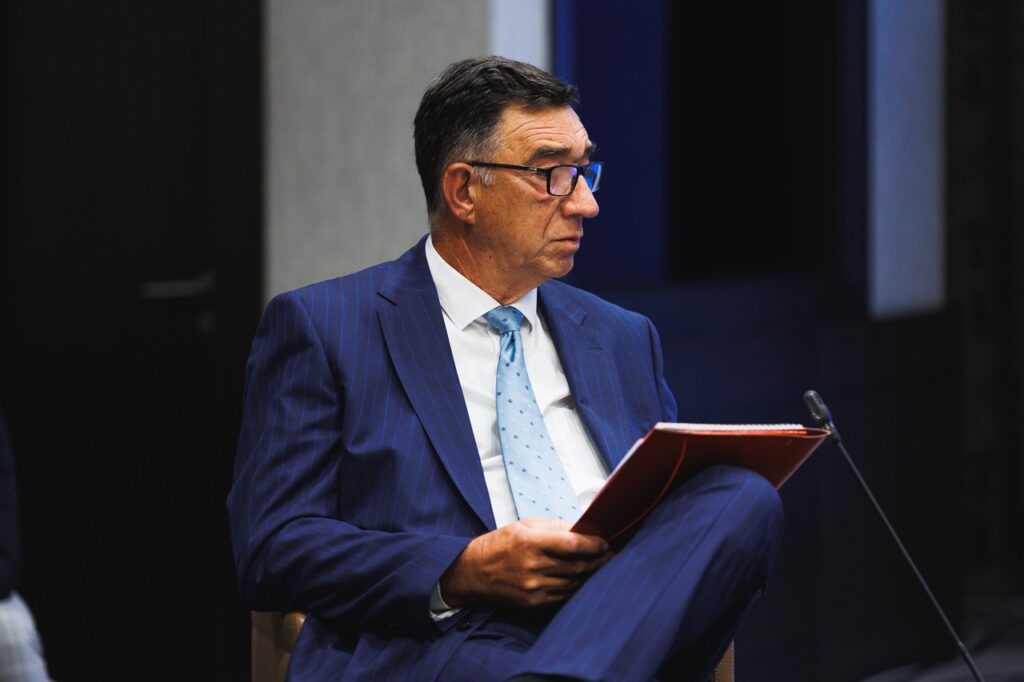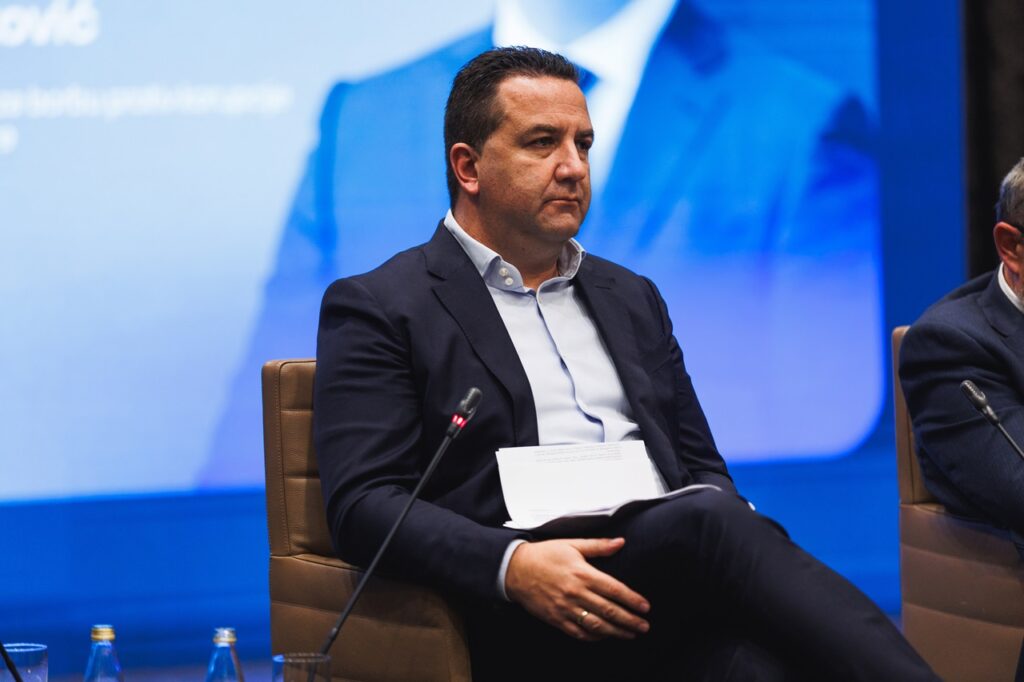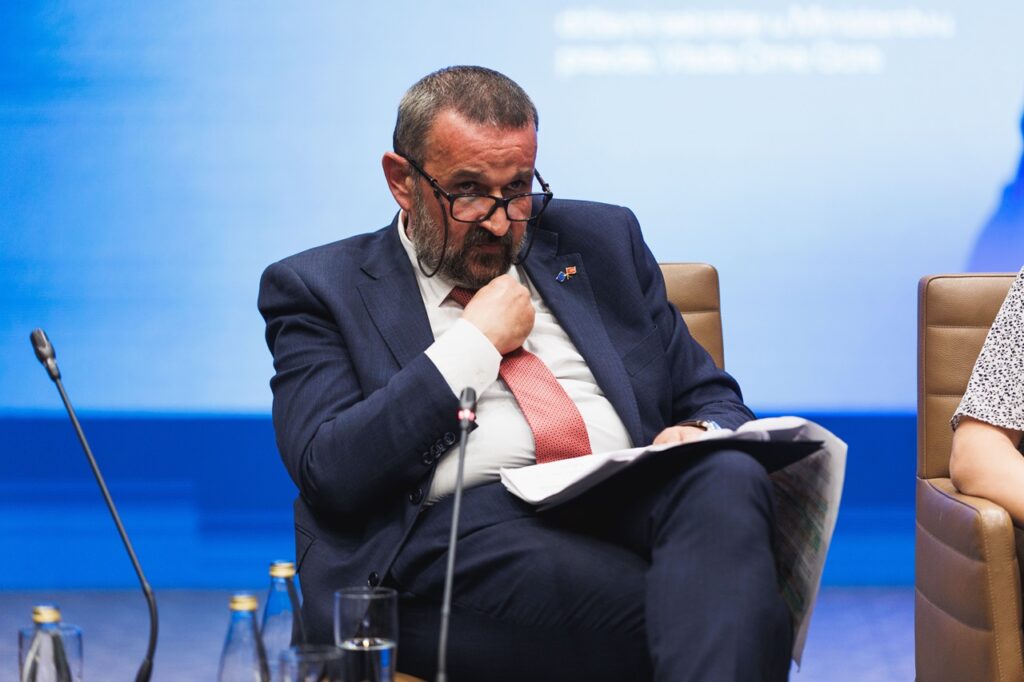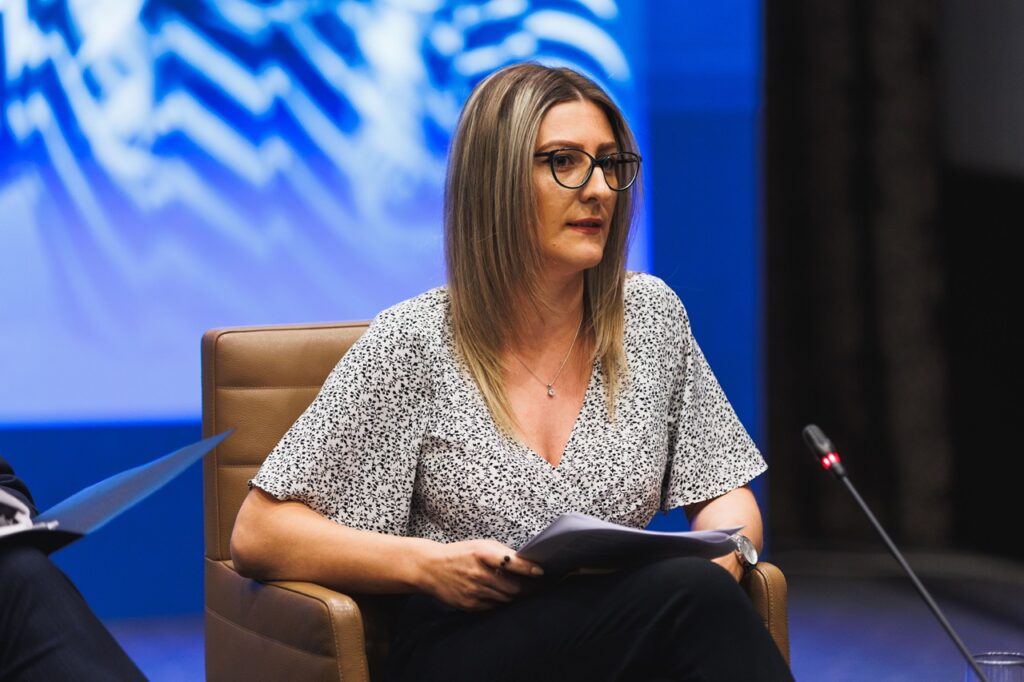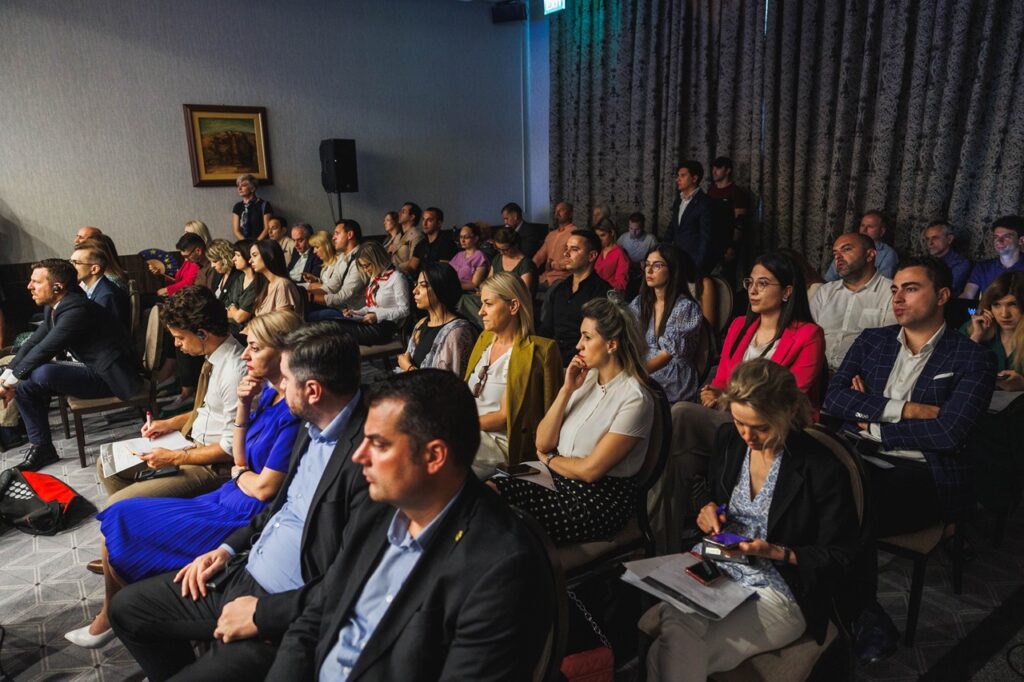Montenegro needs stable and strong institutions, trusted by its citizens, to successfully combat corruption and political will is essential for the recovery of these institutions, as emphasized during the central panel of the forum “We Can Do It – STOP Corruption,” organized by the Centre for Civic Education (CCE) within the PACT against Corruption project, supported by the US Embassy in Montenegro, the Bureau of International Narcotics and Law Enforcement Affairs (INL).
Member of the Judicial Council and former Constitutional Court judge, Miodrag Iličković, assessed that it is entirely natural for politicians to place great importance on IBAR.
“It is natural for politicians to use this for self-promotion,” said Iličković at the panel “For a Society of Equal Opportunities and the Rule of Law.”
He pointed out that the problem lies in the implementation of adopted laws and the fact that citizens have rightly lost trust in institutions.
Iličković reminded that the director of the Agency for the Prevention of Corruption (APC) is under house arrest. “The Agency’s Council has not been formed for over a year, and a second public call for the selection of Council members is currently open,” he said, adding that he cannot understand why someone cannot assess and propose adequate candidates for the Agency’s Council.
He emphasized that the central issue is whether there is an awareness of European values and if people in Montenegro genuinely want to uphold these values. “Or will we divide Montenegro over whether to have a day of remembrance for the victims of Srebrenica or not. That’s where the problem lies,” said Iličković.
According to him, Montenegro lacks 59 judges, and four judges are currently under investigation. “The worst situation is in the basic courts; out of 146 positions, around 39 judges are missing. A competition for judges of the Basic Court in the northern region was announced, seven candidates applied, three withdrew, and ten judges are to be selected – that’s how it looks,” explained Iličković.
He mentioned that it is a question of what the political elites want for society. “They must decide whether they want an independent judiciary or control over it,” added Iličković.
President of the Parliamentary Committee for the Fight against Corruption, Jevto Eraković, said that the minister who was most responsible for adopting the IBAR laws is currently “the government’s scapegoat and someone targeted as undesirable.”
“The adoption of these laws absolutely did not respect the word of experts, specifically regarding ASK, as the recommendations provided by professionals working in the Agency for amendments to the law were not adopted,” stated Eraković.
He emphasized that if institutions do not function, inclusiveness cannot be achieved. “And if there is no political will to achieve this, it is impossible,” added Eraković.
He believes that in Montenegro, the undermining of all institutions is taking place, stating that this is primarily someone’s goal and plan, rather than just ignorance.
“In Montenegro today, it is possible to violate the Constitution and laws. I think a structural change in the approach to fighting corruption is necessary,” said Eraković.
He highlighted the importance of applying legal solutions, noting that what has been done was important statistically to achieve IBAR. “Predominantly political will is needed to start the recovery of institutions, and through this recovery, we will finally reach real solutions,” stated Eraković.
He mentioned that building institutions took time, acknowledging that there were staffing and systemic failures, and that he is fully aware of all the mistakes made before 2020. “These should have been eliminated, and we should have moved forward. However, these negative practices have significantly advanced, leading to a situation in Montenegro where it is possible to violate the Constitution and laws at any time without consequences,” said Eraković.
State Secretary in the Ministry of Justice, Aleksandar Bakrač, stated that the Law on the Prevention of Corruption is not ideal but provides enough tools and is designed for an honest and competent person to do their job. “I think this law provides enough tools to help us fight this plague,” emphasized Bakrač.
Speaking about APC, he highlighted that the Agency should act as a catalyst for all the “impurities that come with governance.”
Reflecting on the issue of access to bank accounts, Bakrač said they would either amend the Law on Financial Institutions or establish a modality through a by-law to access the accounts of those who have not allowed access to their financial accounts. “It is inconceivable that someone at the head of APC has not given consent for access to their bank accounts,” added Bakrač.
Public policy researcher at the Institute Alternative, Dragana Jaćimović, said that the opportunity to create the preconditions for reforming the system through law amendments was missed, especially in areas where problems have been pointed out for years.
Jaćimović believes that the Law on the Prevention of Corruption is poor but satisfies the minimum expectations from Montenegro.
She emphasized that civil society participates where it can contribute to changes. “The problem is that sometimes we are not heard on the other side,” noted Jaćimović.
She noted that there were no public debates for all IBAR laws where arguments could be confronted to reach the best solutions. “Unfortunately, we have not had these substantive public debates in the past four and a half months,” explained Jaćimović.
Prosecutor from Serbia, Bojana Savović, said that it is impossible for a well-governed state to have no arrested officials from the government, as is the case in Serbia.
She highlighted the importance of financial forensics, emphasizing that without them, various complex financial cases will not be resolved and that their knowledge is needed by prosecutors to better understand complex cases in this field. “Without this knowledge, there is no effective fight against corruption,” said Savović.
Savović stressed the need to work on expertise and that those who have sworn to uphold the rule of law in the judiciary should work towards improving society.
MINA

